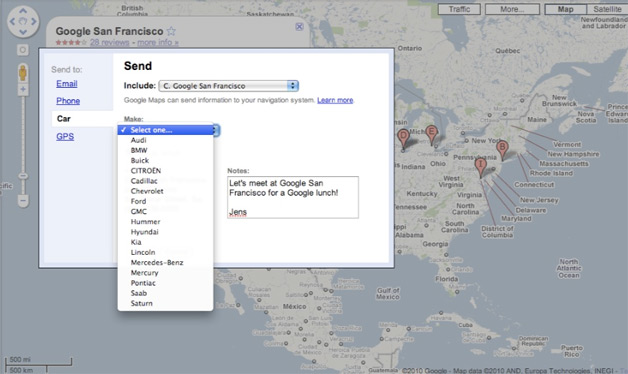Look at what you did, General Motors. You pulled a measly amount of money (relatively speaking) from Facebook’s pocketbook and said it was because you don’t think Facebook’s ads do what they’re supposed to do. Now it’s a great big, steamy pile-on for everybody’s favorite website.
Actually, that’s not exactly true. The reports coming out this week pointing out why ads on Facebook aren’t really that great have been in the works for a while, but it is monumentally bad timing for Facebook since that IPO of theirs is presumably set to crack off tomorrow. However, GM’s announcement, while having hardly any effect on Facebook’s overall value, (inadvertently?) caused a laser fury of scrutiny over the quality of performance of Facebook ads.
Although tons of people can’t get enough Facebook action, many of them aren’t paying attention to any of those pesky ads hanging off to the side. In the same Greenlight report that revealed a Facebook search engine could be a formidable challenge to Google’s search dominance, a different metric shows that most people really pay no mind to ads on Facebook.
When asked, “Do you click on advertisements or sponsored listings in Facebook?” an obstinate 44% said they never click on them. More, another 31% said they rarely click on Facebook ads. A middling 3% said they click them regularly and 10% said they often click the ads (13% haven’t gotten the memo to sign-up for Facebook).
Curiously enough, Greenlight points out in the report that it’s enjoyed some success with Facebook ads. “We saw our Facebook investment (client media spend) overtake both Yahoo and Bing collectively at the start of 2011, hinting the channel had constant growth and was delivering a strong enough return to invest more,” the authors wrote.
So… these ads are engaging at least some people out there in Facebooklands, right? Aside from the obvious finding that as many as 13% click the ads regularly, Greenlight isn’t the only company to admit that advertising on Facebook works for them. General Motors’ automotive rival, Ford, quickly tweeted a rebuke on Tuesday to the claim that Facebook advertising doesn’t work.
Ford wasn’t the only one to offer a rebuttal to GM. Jan Rezab, the CEO of SocialBakers, penned an open letter to GM in Forbes that finely details what others have hinted at: GM didn’t understand how to do Facebook ads effectively, so they prematurely took its ball and went home.
Despite Ford’s vote of confidence and Rezab’s compelling argument, Google’s Director of Product Management Jason Bigler couldn’t resist taking a poke or two at Facebook while the social networking site was still wearing some pie on its face:
The mystery of why Facebook ads work for some companies and perform atrociously for others may have something to do with the type of ad format these businesses are using. True, while the ad formats on Facebook are truly awful, according to a new study from WordStream, Greenlight found that the Sponsored Story format was the most popular and effective ad format. According to the authors, “the Sponsored Story format delivers, on average, a 32% decrease in cost per acquisitions (sales) and an increase in CTR (engagement).”
Perhaps it’s just a case of companies putting all their faith in the wrong type of ad format? Or, going back to Rezab’s point, maybe companies just haven’t quite picked up on the winning formula to create engagement via Facebook?
The disparity of success among businesses doesn’t appear to favor one over the other based on the size of the business, either. Yesterday, NPR reported on a marketing experiment it conducted recently where it followed the return on investment for a budding pizza restaurant in New Orleans. Ultimately, the restaurant owners earned $10 back on a $240 investment in Facebook ads and, perhaps worse, everybody they polled who visited the restaurant after the ads were deployed said they weren’t dining at the restaurant because they were persuaded by ads on Facebook.
Oh, and the $10 was just a donation – it wasn’t even from somebody eating at the joint.
So some ads work better than others, and ads on Facebook work better for some businesses than others. In other words, nobody exactly knows how Facebook ads work. Despite this confusion, people are still falling over themselves trying to get their hands on some Facebook shares despite the fact that there’s no clear sign how Facebook can or will pump up revenue through ad sales.
In the meantime, Facebook’s sitting at the bottom of the advertising melee biting its tongue because the company’s in a quiet period until the IPO when it comes to talking about financial goings-on.
Next week should prove to be a revealing week in the annals of Facebookdom when Zuckerberg and Co. can finally respond to this media mess.






